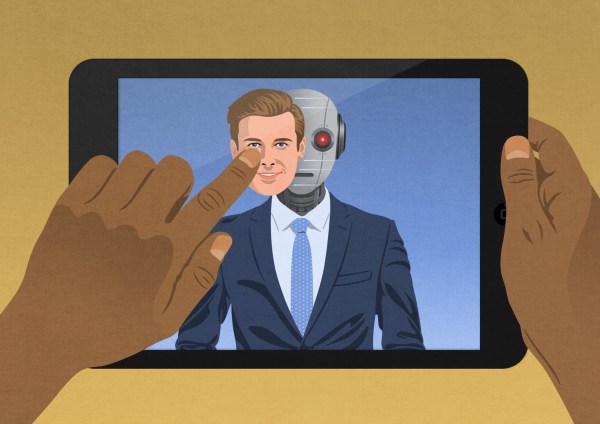Every now and then you read something that stops you in your tracks. You see a statistic—often one that mirrors your experience—and it just staggers you in the tragedy it contains. And so it is with this piece by the Ethics and Public Policy Center’s Patrick Brown, which takes a close look at the terrible toll of opioids on the “unattached male.” What is an “unattached male”? A man who’s single or divorced.
Look at these numbers (and if you want to see the full scope, click on Patrick’s thread):
As soon as I saw those numbers, I thought of another report by Douglas Belkin in the Wall Street Journal, discussing the immense and increasing education gap between American men and women:
At the close of the 2020-21 academic year, women made up 59.5% of college students, an all-time high, and men 40.5%, according to enrollment data from the National Student Clearinghouse, a nonprofit research group. U.S. colleges and universities had 1.5 million fewer students compared with five years ago, and men accounted for 71% of the decline.
Why would the deaths of single men make me think of college enrollment? Well, as with so many things in our complex culture, it turns out that there are deep webs of connection between college and marriage, and then between marriage and loneliness.
As Derek Thompson wrote in The Atlantic, “college grads tend to marry college grads.” In fact, the education gap in marriage has been growing for a quarter-century. By 2015 65 percent of U.S. adults 25 and older who possessed a college degree were married, versus 50 percent of those who finished high school or less.
The story of men in the United States is a story of extremes. On the one hand, there is an elite cohort of men who do very, very well—disproportionately well compared to their female peers. If you look at the very tip of the elite spear, men overwhelmingly populate the ranks of CEOs. In 2020, women accounted “for just 6% of CEOs at the 500 largest American companies.”
Zooming out from the CEO level, data from McKinsey indicates that the proportion of women decreased at each increased level of responsibility: “In 2020, female workers accounted for 47% of entry-level positions, 38% of management roles, and 33% senior management/director roles. Women were entrusted with under one third (29%) of all vice president positions in American organizations.”
This is one reason why so many people scoff when one argues that American men are in crisis. Men can do very, very well in the United States of America, disproportionately so. But men also can do very, very poorly—again, disproportionately so.
There are many measures where this is true. It’s not just opioid overdoses or low college enrollment numbers. Men commit suicide at almost four times the rate of women. They’re even losing close friends at a higher rate than women.
Thus, just as it entirely right and fair to ask whether there are gender-specific cultural or policy changes that can prevent discrimination against women and empower women in the spaces where they face challenges, it is equally just to ask whether there are gender-specific cultural or policy changes that help repair the terrible (and often deadly) damage done to young men.
It’s especially just to raise this point when our society is embroiled in deep debate over what it even means to be a man. For example, in 2019 the American Psychological Association took direct aim at what it calls “traditional masculinity ideology,” declaring it harmful to boys and men. It said “traditional masculinity” is “marked by stoicism, competitiveness, dominance, and aggression.”
I don’t want to rehash years-long arguments, but it’s worth noting that stoicism, competitiveness, and even aggression can be virtues. They are not inherent vices. Each can be toxic in the wrong context. Each can be indispensable in the right time and place. As I recently discussed with Vox’s Sean Illing, a healthy masculinity seeks to channel these characteristics (which are often, but not exclusively found in young men) towards virtue and away from vice.
In other words, you’re not asking boys to reject their nature, nor are you asking them to indulge their impulses. Instead, the process of character formation shapes a young man from the inside out, to make the very best of who they are. And then, ideally, as a boy grows into a man, he connects his virtue to a sense of purpose—a calling into which he pours his energy and effort.
That calling can be almost infinitely variable, but we’d be fools not to notice that men are disproportionately drawn to the physical world, to professions that require strength and energy. Part of the challenge of modern life is that those professions are diminishing. As Bruce Springsteen recognized all the way back in 1985, “These jobs are going, boys, and they ain’t coming back.”
But regardless of how you define masculinity, here are two jobs that only men can fill: Only a man can be a husband. Only a man can be a father. And those jobs have a purpose and meaning that transcends the purpose and meaning of virtually any profession or career. In a world where men often struggle to find a distinct masculine purpose, two of the most important purposes that any person can pursue are right there, in front of them, and theoretically available to the vast majority of America’s men.
We shouldn’t pretend that getting married and building a family are the exclusive virtuous paths for young men (as Paul notes in 1 Corinthians, there is great virtue in purposeful singleness, for both men and women). But a healthy culture and a healthy politics should make family formation easier, building structures that help sustain those families through good times and bad.
A healthy culture should also continue to destigmatize marriages where women are better-educated or make more money than their husband. Education gaps need not necessarily lead to marriage gaps, and data indicates that strong majorities of both men and women report being “very happy” with their marriages when the wife has a degree and the husband does not.
As readers know, I don’t place a great deal of hope in the ability of public policy to fundamentally change culture (culture impacts politics more than politics impacts culture), but policy has its place. At the very least, it should do no harm to families. And both public policy and corporate activism can do much more to ameliorate the soul-sapping scourge of porn, a medium that alienates men and women and contributes immeasurably to deep dysfunction in our most intimate relationships.
But, at the end of the day, there is no substitute for patient, intentional, and courageous personal action, including intentionally and purposefully parenting your children, so that married dads beget married sons, and intentionally and purposefully mentoring boys without dads and reaching out to men without friends. The government can’t love a kid. A person can.
There’s an overwhelming amount of research that boys do better when they have fathers, but there’s also research showing that fathers are so powerful in a young man’s life that even the presence of other fathers in a neighborhood can improve outcomes for fatherless young men.
There’s a reason why we so often turn exclusively or primarily to politics to change our nation. Personal engagement is hard. It’s emotionally risky. The rewards can be great, but the wounds can be deep.
Two quick stories illustrate this point. As longtime readers may remember, years ago I served as a volunteer interim youth pastor at a rural Kentucky church. The full-time youth pastor was caught doing inappropriate things online, and I filled in while we conducted a search for a permanent replacement.
I ended up serving for more than a year. My life was incredibly full. By day I was a commercial litigator for a large law firm. By night and on the weekends, I was leading Bible studies and prayer meetings, preaching, and spending time with kids in distress. Our ministry concentrated on reaching vulnerable kids, and we spent countless hours driving from trailer park to trailer park picking up and dropping off teens who came from the most dysfunctional, broken homes.
About halfway through our tenure we noticed that one of the most engaged kids seemed to be dropping out of church. He had never missed a week, but the very instant he graduated from high school, he stopped attending. We weren’t concerned that he missed once, but when he missed three times, we got alarmed.
So Nancy and I got in our car and drove to his home. We found him, drinking alone in his bedroom. He was living with relatives. His father wasn’t a part of his life, and his mother was an alcoholic. He didn’t know what to do with his life. He had no plan. He had no purpose. He had no one to show him the way.
We asked him to move to an apartment building next door to his house. We paid for his first month’s rent and security deposit. Another friend found him a job. He ate dinner with us regularly. I’d pop by his apartment to make sure he was taking care of himself. We helped him learn to pay bills and organize his life. Crucially, he came back to church and rarely missed a week.
And what happened? He fell in love with a beautiful Christian girl. I was a groomsman in his wedding, and now he and his wife are raising Christian kids. The old vicious family cycle was broken. A new virtuous family cycle had begun.
But remember what I said about risk and wounds. Nancy and I in all of our young idealism believed we’d figured out the formula. Intervene. Give direction. Give some help. All will be well. So when another kid disappeared from church, we tried to run the same playbook. But he took everything we gave him, and when we didn’t give him all that he demanded, he stole from us. After he stole from us, he disappeared into a life of addiction and despair.
Lives are changed by loving communities, but not all lives. Yet our responsibility remains the same—love anyway. We conservatives like to talk a great deal about personal responsibility, and often that conversation focuses on the responsibilities of the weak and vulnerable. The fatherless boy needs to work hard. He needs to stay out of trouble. Then he can succeed. He can find his purpose.
But what about the personal responsibilities of the men who’ve already found their purpose, the husbands and fathers who thrive in this land? To break cycles of despair, they should consider reaching out and extending themselves. Too many young men are wounded. Too many are dying. Too many families fail. They can’t repair themselves. Someone has to help. If we want more men to become husbands and fathers—to follow this high call—someone has to show them the way.
One more thing …
In this week’s Good Faith podcast, Curtis and I tackle one of the toughest questions in our contentious times. When there’s strife and conflict in the church, when should I stay, and when should I go?
It’s a question that doesn’t just apply to church. It can apply to jobs, friendships, and family relationships. What is the virtue in enduring pain? When is that pain too much? These are hard questions, and we don’t have easy answers. But we do have thoughts, and you can listen to (and comment on) them here.
One last thing …
This is one of my favorite songs based on one of my favorite psalms. Enjoy:







Please note that we at The Dispatch hold ourselves, our work, and our commenters to a higher standard than other places on the internet. We welcome comments that foster genuine debate or discussion—including comments critical of us or our work—but responses that include ad hominem attacks on fellow Dispatch members or are intended to stoke fear and anger may be moderated.
With your membership, you only have the ability to comment on The Morning Dispatch articles. Consider upgrading to join the conversation everywhere.